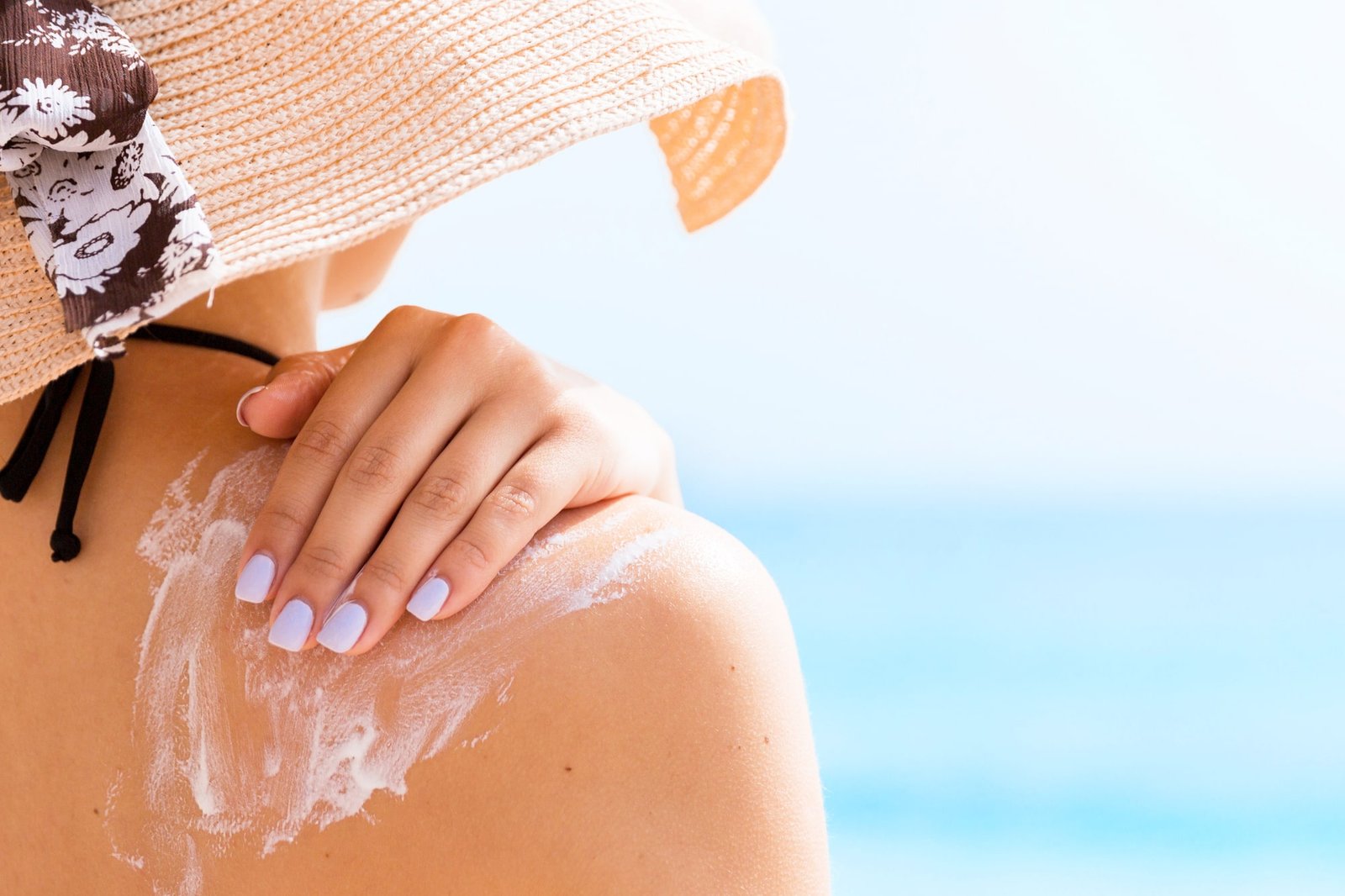Sunscreen and
tanning products
NEW ARRIVALS
Shop our latest products and fresh styles
ON SALE
Get thee items before they are gone!
Sunscreen and Tanning Products in the UK
The UK market is home to a wide array of suncream and tanning products, featuring renowned brands like Australian Gold, Bondi Sands, and Vita Liberata, which offer various options including organic products that cater to diverse skincare needs.
Why is Sunscreen Important?
Suncream is essential for sun protection as it helps shield the skin from harmful UV light, which can cause various forms of skin damage and increase the risk of skin cancer, according to skincare experts.
What are the Risks of Sun Exposure?
Prolonged sun exposure without proper protection can lead to skin damage, premature ageing, and increased risks of skin cancer due to harmful UV light.
Specific risks associated with prolonged sun exposure include sunburn, which can cause redness, pain, and peeling of the skin. This can also lead to skin pigmentation, where certain areas may become darker or discoloured. Long-term effects such as wrinkles, fine lines, and age spots can result from continuous exposure to UV rays.
It is crucial to prioritise sun safety measures to mitigate these risks. This includes:
- wearing sunscreen with a high SPF
- seeking shade during peak sun hours
- wearing protective clothing like hats and sunglasses
- avoiding sunbeds
By being proactive in sun protection, you can safeguard your skin against potential harm and maintain its health and youthfulness in the long run.
How Does Sunscreen Protect the Skin?
Suncream protects the skin by creating a barrier that absorbs or reflects UV light, with SPF levels indicating the degree of protection provided against sun exposure.
Active ingredients in suncreams work in various ways to provide protection. For instance, mineral suncreams containing zinc oxide or titanium dioxide physically block UV rays, while chemical suncreams like avobenzone and octocrylene absorb UV radiation.
SPF, or Sun Protection Factor, measures how long the suncream protects you from sunburn compared to not wearing any. It is recommended to use a broad-spectrum suncream with at least SPF 30, allowing you to stay under the sun 30 times longer than without. Applying suncream generously and regularly, especially on exposed areas, is essential for maximum efficacy.
What to Look for in Sunscreen Products?
When selecting a sun cream product, it’s essential to consider factors such as SPF level, broad-spectrum protection, water resistance, and the active ingredients to ensure comprehensive sun protection.
SPF Level
The SPF level of a suncream indicates how well it can protect the skin from UVB rays, with higher SPF values offering greater sun protection.
SPF (Sun Protection Factor) is a crucial factor to consider in safeguarding your skin against the harmful effects of sun exposure. The scale typically ranges from SPF 15 to SPF 50, with each level representing the degree of protection offered. SPF 15 provides basic protection, blocking about 93% of UVB rays, while SPF 30 can block around 97%, and SPF 50 offers the highest, blocking up to 98%.
It’s important to match the SPF level to your skin type and the intensity of sun exposure. For fair skin that burns easily, opt for a higher SPF like SPF 30 or above, whereas medium to dark skin tones may find adequate protection with SPF 15-30.
Broad Spectrum Protection
Broad-spectrum sunscreens are formulated to protect against both UVA and UVB rays, offering comprehensive protection from the full spectrum of UV light.
Understanding the distinction between UVA and UVB rays is crucial in grasping the importance of using broad-spectrum protection. UVA rays penetrate deep into the skin, causing premature ageing, wrinkles, and contributing to skin cancer development over time. On the other hand, UVB rays primarily affect the skin’s top layer, leading to sunburn and increasing the risk of skin cancer.
By opting for a sunscreen that provides broad-spectrum coverage, individuals are safeguarding their skin from the harmful effects of both types of UV radiation, reducing the risk of sunburn, premature ageing, and skin cancer. This proactive approach to skincare health emphasises the significance of comprehensive sun protection.
Water Resistance
Water-resistant sunscreens are designed to stay effective even when exposed to water or sweat, providing longer-lasting sun protection during activities like swimming or exercising.
With the growing popularity of outdoor sports and activities, the need for reliable sun protection that can withstand water exposure has become paramount. Water-resistant sunscreen ensures that your skin remains shielded from harmful UV rays, even when you are engaged in water-based activities or high-intensity workouts. It acts as a barrier against the sun’s damaging effects while allowing you to enjoy your time in the sun without worrying about constant reapplication.
Active Ingredients
The active ingredients in suncream, such as zinc oxide or avobenzone, are crucial for determining the product’s effectiveness in protecting against UV rays.
There are two main categories of active ingredients in suncreams: mineral (physical) blockers like zinc oxide and titanium dioxide and chemical (organic) filters like avobenzone, oxybenzone, and octinoxate. Mineral blockers work by sitting on top of the skin and reflecting or scattering UV rays, while chemical filters absorb the UV radiation and convert it into heat, which is then released from the skin.
When selecting a suncream, it’s important to consider your skin type and any specific sensitivities. For example, individuals with sensitive skin may fare better with mineral suncreams, which are less likely to cause irritation compared to chemical options. Those with oily or acne-prone skin might prefer oil-free formulations that won’t clog pores.
Types of Sunscreen Products
There are various types of sun cream products available, including chemical sunscreens, physical sunscreens, and combination sunscreens, each offering unique benefits and levels of protection.
Chemical Sunscreens
Chemical sunscreens contain active ingredients that absorb UV light and convert it into heat, offering effective sun protection.
These active ingredients include compounds like oxybenzone, avobenzone, octinoxate, and octisalate, which work by penetrating the skin and absorbing the damaging UV rays. This process helps to prevent sunburn and reduce the risk of skin cancer caused by sun exposure.
Whilst chemical sunscreens are generally effective in providing broad-spectrum protection, they may not be suitable for individuals with sensitive skin as they can sometimes cause irritation or allergic reactions. Some of the chemicals in these sunscreens have raised concerns about their impact on marine life and the environment.
Physical Sunscreens
Physical sunscreens use minerals like zinc oxide and titanium dioxide to create a barrier on the skin that reflects UV light.
One of the key benefits of physical sunscreens is their gentle nature, making them particularly suitable for individuals with sensitive skin. Unlike chemical sunscreens that work by absorbing UV rays and converting them into heat, physical sunscreens act as a shield, physically blocking and scattering the harmful rays.
Physical sunscreens are often less likely to cause irritation or trigger allergic reactions, making them a popular choice for those with skin sensitivities. They provide immediate protection upon application, as they sit on top of the skin and start working right away, unlike chemical sunscreens that need time to be absorbed.
Combination Sunscreens
Combination sunscreens blend both chemical and physical ingredients to offer broad-spectrum protection with the benefits of both types.
One of the key advantages of using combination sunscreens is that they are effective in shielding the skin from both UVA and UVB rays, providing comprehensive coverage against the harmful effects of sun exposure.
By combining chemical filters that absorb UV rays and physical blockers that reflect them, these sunscreens ensure a higher level of protection compared to using either type alone.
Individuals with sensitive skin can benefit from combination sunscreens as they tend to be gentler and less irritating than pure chemical formulas.
For those with oily or acne-prone skin, opting for a combination sunscreen with a matte finish can help prevent excess shine and breakouts while still offering adequate sun protection.
On the other hand, individuals with dry skin may prefer a combination sunscreen enriched with moisturising ingredients to keep their skin hydrated and protected from sun damage.
Incorporating combination sunscreens into your daily skincare routine can help maintain the health and appearance of your skin, making them a versatile and essential product for sun protection.
Organic Sunscreen Products in the UK
Organic suncream products in the UK are becoming increasingly popular, offering natural, vegan, and reef-friendly options for consumers seeking eco-conscious sun protection.
What Makes a Sunscreen Organic?
Organic sunscreens are formulated with natural ingredients and are free from synthetic chemicals, making them eco-friendly and gentle on the skin.
When looking for an organic sunscreen, it’s crucial to check the label for certain criteria to ensure its authenticity. The most common natural ingredients found in organic sunscreens include zinc oxide, titanium dioxide, coconut oil, shea butter, aloe vera, and various plant extracts. These ingredients provide broad-spectrum protection against harmful UVA and UVB rays without the use of harsh chemicals that can potentially harm both your skin and the environment.
- The benefits of using organic sunscreens over conventional ones are aplenty. First and foremost, organic sunscreens are less likely to cause skin irritation or allergic reactions, making them suitable for even the most sensitive skin types.
- Since they are free from synthetic compounds like oxybenzone and octinoxate, organic sunscreens are considered reef-safe, meaning they are less harmful to marine life and coral reefs.
- Organic sunscreens are rich in antioxidants and nourishing properties that not only provide protection from the sun but also help to improve overall skin health.
Benefits of Using Organic Sunscreen Products
Using organic suncream products offers several benefits, including being vegan, reef-friendly, and suitable for sensitive skin.
Organic suncreams are made from natural ingredients such as minerals like titanium dioxide and zinc oxide, offering broad-spectrum protection without harsh chemicals that may irritate the skin. This makes them ideal for individuals with sensitive skin prone to reactions from chemical suncreams.
Organic suncreams are biodegradable, minimising harm to marine life and coral reefs, making them an eco-conscious choice for those who care about the environment. They also tend to be cruelty-free and not tested on animals, aligning with ethical values.
Tanning Products in the UK
The UK market for tanning products is varied, with options ranging from self-tan lotions and gradual tanners to bronzers.
Types of Tanning Products
Tanning products come in various forms, including self-tan lotions, gradual tanners, and bronzers, each designed to help achieve a natural-looking tan.
Self-tan lotions are popular for their ease of use and ability to give a quick tan without UV exposure. They typically contain dihydroxyacetone (DHA), a colourless sugar that interacts with dead skin cells to darken the skin gradually over a few hours.
On the other hand, gradual tanners provide a subtle tan over multiple applications, ideal for those looking for a more gradual colour change.
Conversely, bronzers offer an instant tan effect that can be washed off, making them perfect for special occasions or temporary colour enhancement.
How to Choose the Right Tanning Product for Your Skin?
Choosing the right tanning product for your skin involves considering your skin type, desired level of tan, and care tips to maintain a sun-kissed glow.
- It’s essential to determine your skin type to select a tanning product that suits your specific needs. This will help you avoid adverse reactions and achieve the most natural-looking tan. For oily skin, opt for oil-free formulas to prevent breakouts, while hydrating lotions work best for dry skin. Consider your desired level of tan – whether you prefer a subtle glow or a deep bronzed look.
- When maintaining your tan, exfoliation is key to ensure an even fade. Using a gentle scrub a few times a week can help remove dead skin cells and prevent patchiness. Moisturising regularly is also vital to keep your skin hydrated and prolong the lifespan of your tan.





